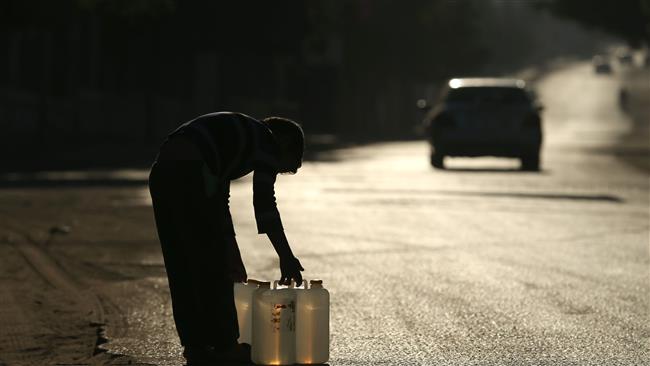
RNA - Rebhy al-Sheikh, the deputy chairman of the Palestinian Water Authority, said on Thursday that more than 90 percent of the water in the aquifer in Gaza is unfit for domestic use.
Aquifers are Gaza's primary water source and provide for 98% of public consumption. Locals and development specialists say the situation is getting beyond dire across the besieged Palestinian enclave.
Resident say the water from the tap is barely usable, while those that can afford it buy bottled water.
Marwan An-Najar, a Gazan who travels four kilometers (2.5 miles) to fill a 20-liter plastic jerrycan at a local desalination station, said he has not tasted sweet tap water in 10 years.
Najar, a father of six, while queuing to get water at the desalination station in Khan Younis said, "The (tap) water is salty, as if it came straight from the sea. We have stopped drinking it."
Commenting on water crisis across Gaza, Fathy Mhareb, a 60-year-old unemployed father of eight said,"It is not even fit for the animals to drink. We buy sweet water and use the salty water to shower."
The Gaza Strip, which has been under an Israeli siege since June 2007, has long suffered severe water problems. Its aquifer has been contaminated by sewage, chemicals and seawater and the territory's three desalination plants are unable to meet demand.
The Israeli blockade has also led to a dramatic decline in the standards of living as well as substantial levels of unemployment and poverty.
Adnan Ghosheh, a senior water and sanitation specialist with the World Bank, stated in November that only 10 percent of Palestinians in the blockaded enclave have access to drinking water.
The official with the international financial institution also reiterated earlier United Nations warnings that the Gaza Strip could be "uninhabitable" in less than five years on current trends.
Director of Operations for United Nations Relief and Works Agency for Palestine Refugees in the Near East (UNRWA) in the Gaza Strip, Bo Schack, warned in October that the Israeli blockade and restrictions on the entry of construction materials into the enclave “are negatively impacting the lives of Palestinians there.”
He said Israeli actions are hindering peace and stability in the Gaza Strip, calling for measures to alleviate the sufferings of the Gazans.
Israel launched its latest war on the Gaza Strip in early July 2014. The 50-day military aggression, which ended on August 26, 2014, killed nearly 2,200 Palestinians, including 577 children. Over 11,100 others — including 3,374 children, 2,088 women and 410 elderly people — were also wounded in the war.
847/940